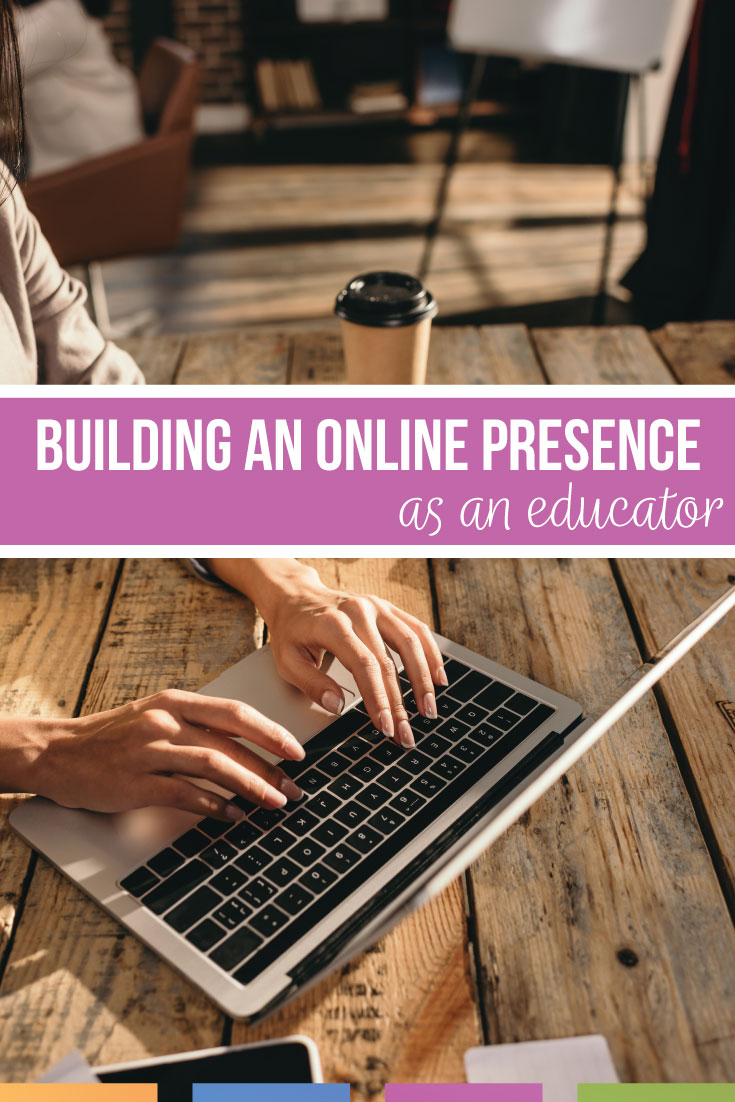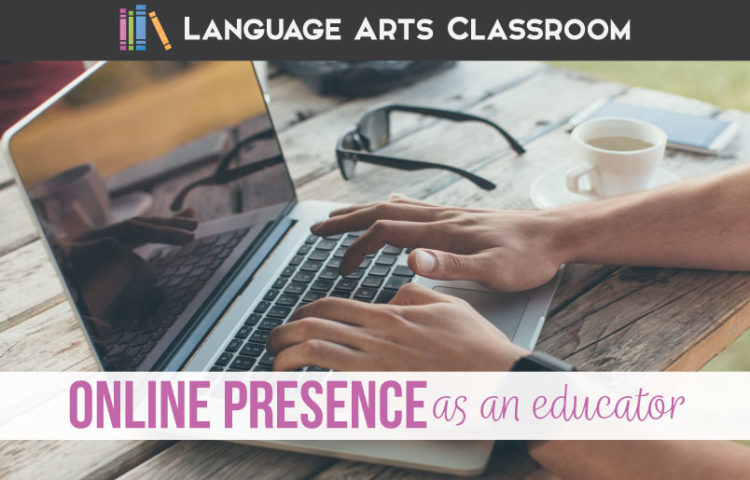Building an online presence as an educator, perhaps an online presence for schools? Great, welcome!
Teachers collaborate on Twitter, Instagram, Facebook, and with blogs. What you post as an educator and what you post on a personal page are probably different ideas. This blog post covers ideas for professional pages, although clearly, we are always educators even on personal accounts. For this post, I’m referencing our interactions as professional teachers.
The educator presence online is relatively new to the field. It’s not without problems, especially if you are one person building an online presence for schools. (That’s a ton of responsibility and reflection.) An educator presence can be a powerful tool for evaluations, connections, and future jobs.
I love that teachers can respond to my ideas and boom! Quickly, I have a new way to look at what I’ve done. I began on Twitter… six years ago? (Edit: Twitter tells you on your profile. Eight years as of the writing!) I began blogging in 2009. Lots change on social media, but some facts remain the same.
You can learn about your craft while building an online presence as an educator. Building an online presence for schools requires a bit more awareness since you are building a persona for others.
If you are an educator looking to collaborate with other teachers online, here are some time-tested ideas.
1. Check blogs for interesting, useful reads.
I find posts that I benefit from—that help me reflect. Reading about another teacher’s perspective allows me to tweak my own teaching methods. How do I find these blogs? I simply search! Whatever idea I’m currently pondering, I enter in a browser, and I normally find a blog post. After some time, you will find go-to blogs about your topics. If you don’t find your topic, you could start a blog for free.
Other bloggers work hours to create content. Share it! Start a conversation on a Facebook page or on Twitter. Part of building an educator presence is discussing ideas with others.
2. Be aware of what you post.
Some might say that America is not supportive or favorable to education.
I argue that our culture is hostile to education. Parents and teachers might tell students that education is important, but other aspects of their lives tell students it is not. However! I feel a shift is occurring. We educators can be part of this shift.
Sometimes, educators post images or complaints that are unprofessional concerning students or such. It adds to negativity surrounding education and even though it is not fair, it reflects poorly on all of us. I strongly believe that no comments on parents or students should ever be part of the educator presence online. (Sometimes I see students’ work online, and I cringe.)
Imagine these scenarios: A nurse hops on Facebook and jokes about a child who came to the emergency room with ibuprofen stuck up her nose. A lawyer tweets about a ridiculous client who wanted to copyright a certain way to fold a piece of paper. A website developer rants about a client who redid his coding work.
We would think the nurse, lawyer, and website developer were jerks or at the very least, we would think they were unprofessional people bordering on confidentiality rules. Many people would call them out for blasting these no-named people on social media.
Teachers need to be careful of this. I see many teachers who share “funny” moments, such as a student answering a question wrong or a class that struggles with following directions. Listen: teaching is frustrating. Still, don’t blast your students on social media. That action borders on “shaming.” It is unethical and reflects poorly on the education field, especially if you are creating an online presence for schools.
3. Don’t spread yourself too thin.
A bazzilion (exactly that many) social media platforms exist. I tried Snapchat and disliked it. I deleted the app. Social media should be engaging and something that helps you. If you are overwhelmed, step back. Ask yourself if you enjoy a platform. If the answer is ‘no,’ move on.
4. Join Facebook groups and like pages.
Not only will you build honest relationships, you’ll learn more and find strong content. A Facebook page exists for almost every subsection of education. High school American literature teachers? Check. Yearbook teachers? Check. Technology in the ELA classroom? Check.
Search for these groups and join. Contributing ideas will help you write your lesson plans.
5. Produce quality information.
At first, I rambled and tweeted all the time. Twitter was new, but still, I did not put forth only a professional image. I didn’t consider that administrators and future professors would interact with me. I probably grumbled about changing diapers and making dinner. Not bad topics, but certainly not how I wanted others to see me as an educator. (And, probably not great for online presence for schools I might associate with some day.)
The great thing about online personas is that you can develop one. That is also the tricky aspect too. As you spend time online, other educators will learn what to expect from you. For me? I want people to think I produce quality information. I am careful with my shares and retweets.

Collaboration is where it is at—in person and on social media. Building an online presence as an educator has helped me develop professionally. I love what I learn from my online groups, and I hope you do too!
Are you interested in more ideas for building an educator presence or an online presence for schools? My Pinterest boards have tons of ideas from around the web.

